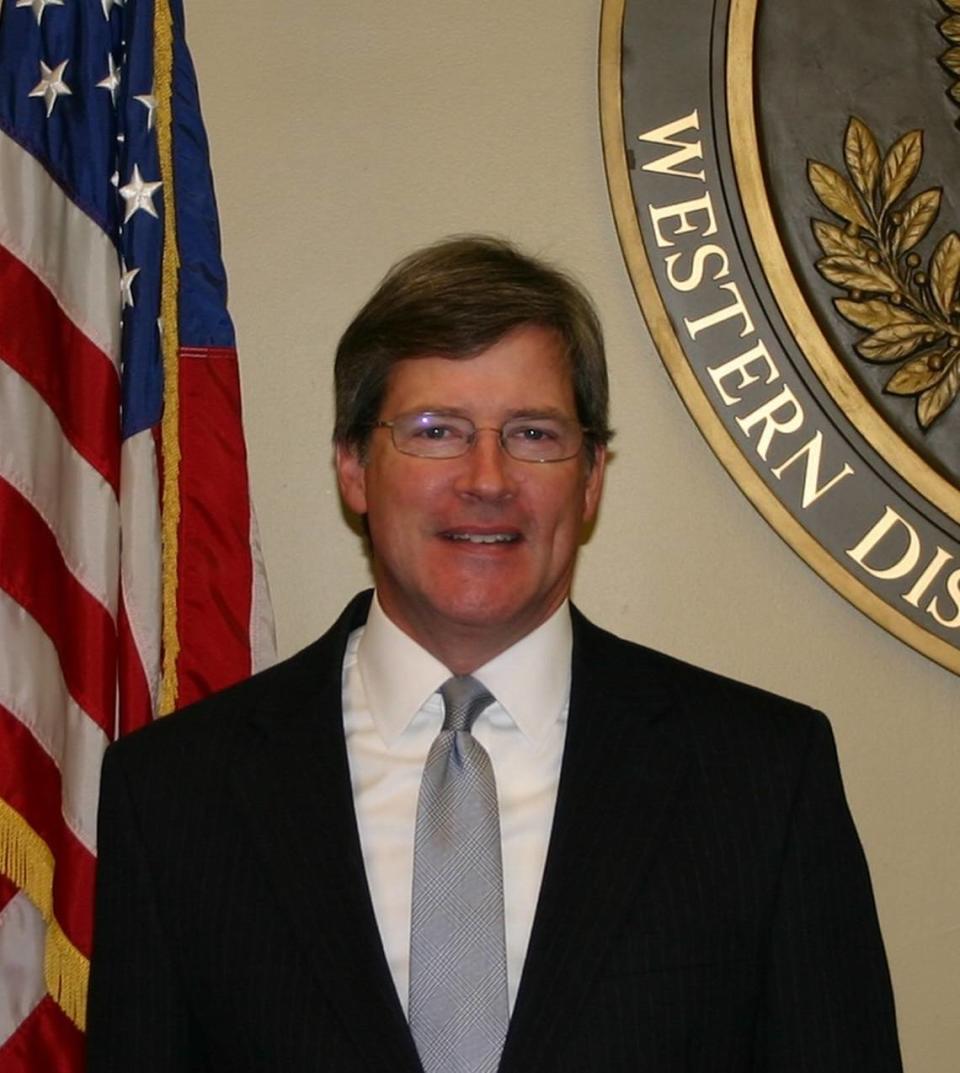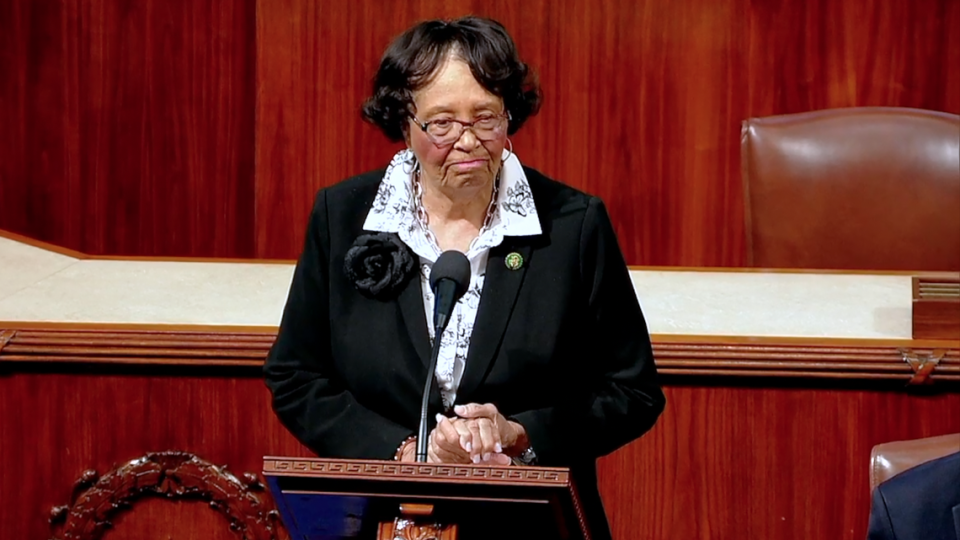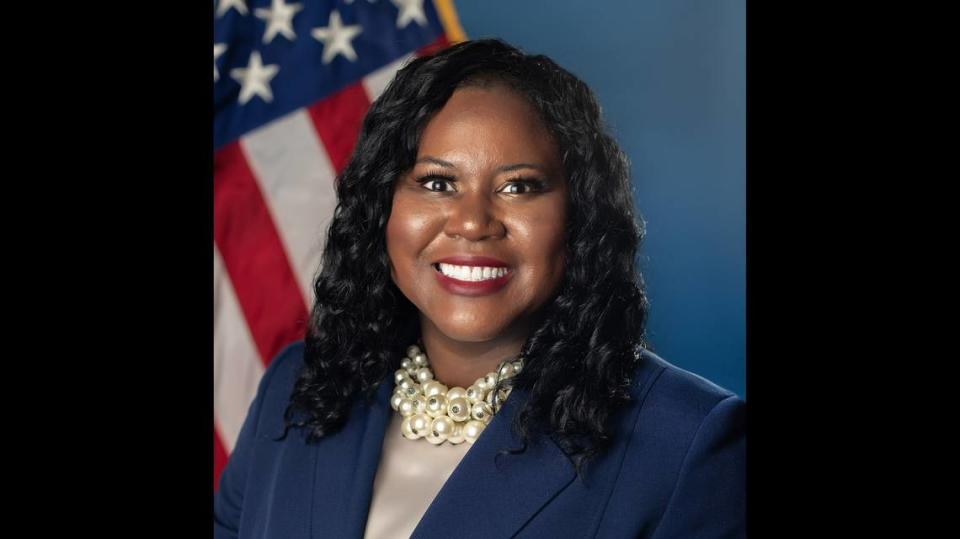After 150 years of white male trial judges, could Charlotte’s federal court soon diversify?
- Oops!Something went wrong.Please try again later.
- Oops!Something went wrong.Please try again later.
- Oops!Something went wrong.Please try again later.
- Oops!Something went wrong.Please try again later.
An historic opportunity to diversify the Charlotte federal bench has been bogged down for more than a year by what appears to be a political disagreement over who should get the job.
Now, a second judicial vacancy in the Western District of North Carolina opens the door to a potential compromise between the Democratic White House and North Carolina’s top-ranking Republican leaders that could lead to two court seats being filled in the coming months instead of one.
The Western District, one of three federal court subdivisions in North Carolina, serves more than 3 million residents in 32 western counties, including diverse and growing urban areas in Charlotte-Mecklenburg, Asheville, Gastonia and Mooresville/Statesville.
Yet, in its 150-year history, the court has had only white men serve as trial judges. Of the country’s 94 federal court districts, only three others share that distinction. None comes close to having the population and diversity of the WDNC.
Despite the public importance of who fills the court positions, the negotiations have taken place almost entirely behind the scenes, leaving it far from clear who will be nominated or when. Those decisions carry significant political, cultural and racial implications.
Nonetheless, a front-runner for one of the seats has emerged. Sources with direct knowledge of the selection process say U.S. Magistrate Judge David Keesler, a Democrat from Charlotte, has earned the vital backing of North Carolina’s two Republican senators, Thom Tillis and Ted Budd.
Other current or former candidates for the seats included two Mecklenburg County judges who are Black, a federal public defender and a diverse Charlotte defense attorney.

Keesler, a former state and federal prosecutor who has served as a federal magistrate for almost 20 years, has bipartisan support from some of Charlotte’s most prominent attorneys. But his candidacy would be a break from President Joe Biden’s pledge to diversify the federal bench.
Nationally, 70% of federal judges are white, 60% are men. Former prosecutors outnumber public defenders 4 to 1, according to the National Association for Public Defense.
Max Cogburn creates vacancy
In February 2022, U.S. District Judge Max Cogburn of Asheville, a Democrat who frequently hears cases in Charlotte, announced that he intended to move to senior status, which would enable him to stay on the bench but with a lighter schedule. Cogburn, who was appointed by Barack Obama, said he would make the change as soon as his replacement was nominated by Biden and approved by the U.S. Senate.
Members of the Charlotte legal community greeted the announcement with the expectation that the White House would end the Western District’s run of white male judges that critics say has influenced at least the appearance of justice for decades.
“People, both Black and white, realize how important it is to have all segments of our society represented on the federal bench,” James Ferguson, the veritable dean of the state’s Black attorneys, told The Charlotte Observer in April 2022. “For the first time there is serious talk about submitting their names to the president.”
That May, the Democratic members of North Carolina’s congressional delegation did just that, sending three names to the White House for consideration, all of them diverse, according to two sources with direct knowledge of the process. They included Mecklenburg County Superior Court judges Carla Archie and Reggie McKnight, and Charlotte criminal defense attorney Noell Tin. Archie and McKnight are Black; Tin is Burmese-American.
Since Biden took office, the White House has won Senate approval of 136 so-called Article III judicial candidates, including 100 for district court seats. A record number of the president’s nominees have been women, minorities and other traditionally under-represented groups.
Yet in the 18 months since Cogburn’s announcement, a replacement has not been nominated or officially vetted. Multiple sources say the three names submitted by Democrats last year are no longer under consideration.
In a message to the Observer on Wednesday, Tin endorsed the need for a diverse nominee.
“It was an honor to make the short list, but the primary reason I expressed interest was that this nomination is an historic opportunity,” he said. “I hope the Biden administration doesn’t squander it.”
In the meantime, Tillis and Budd, who hold virtual veto power over any White House pick, let it be known privately this spring that they are backing Keesler.
Keesler, who is white and a former Morehead scholar at UNC Chapel Hill, makes it clear he wants the job.
“Being a part of the federal court family is a great privilege,” he told the Observer in a weekend email. “I have loved serving as a Magistrate Judge in the Western District for the past 19 years. It would be a great honor to now be considered for nomination as a District Judge on our court.”

As for now, U.S. Rep. Alma Adams of Charlotte, a Democrat who is expected to play a role in the selection, has yet to interview Keesler, according to sources.
She is believed to prefer more diverse candidates from a list of potential nominees that at one time also included Charlotte attorney Cheyenne Chambers and Assistant Federal Public Defender Erin Taylor, immediate past president of the Mecklenburg County Bar Association.
Adams’ office declined comment about the search.
“Judicial nominations are one of the president’s most important ... responsibilities, so Congresswoman Adams has no comment on gossip or hypothetical nominations,” said Sam Spencer, Adams’ communications director.
A second vacancy
On May 17, U.S. District Judge Bob Conrad of Charlotte added a layer of complexity to the process by moving to senior status on his 65th birthday, doubling the Western District seats Biden has to fill.
That opened the door to a possible compromise in which Keesler would fill one seat while a diverse nominee would fill the other.
According to more than a half dozen people interviewed by the Observer, the pairing currently receiving the most attention is Keesler and U.S. Attorney Dena King.

As with Keesler, King is a Charlotte native and registered Democrat who has spent the bulk of her career in federal court, in her case as a federal prosecutor.
In November 2021, Biden made her the first Black woman to serve as U.S. Attorney in the Western District. King has never been a judge and has been in her current job for only a year and a half. A spokeswoman in her office declined comment when asked about King’s rumored candidacy.
Whether King has the backing of Budd, who was elected in November, and Tillis is unclear. Budd’s office did not respond to an Observer email seeking to discuss the court appointments.
A Tillis spokesman refused to comment, but reaffirmed a pledge Tillis made in April 2022 to work with the White House and his fellow senator “to help select the best candidate to serve the people of the Western District of North Carolina” and that the person picked is “nominated and confirmed in a timely manner.”
Tillis, a member of the powerful Senate Judiciary Committee, has already shown his willingness to work across the aisle to appoint judges, says Carl Tobias, a University of Richmond law professor who follows N.C. politics.
“You can’t imagine how partisan the Judiciary Committee has become,” Tobias says. “Tillis is pretty reasonable, especially for that committee, which has a lot of screamers.”
Critics of the potential Keesler/King nominations point out that they would add two career prosecutors to a bench that needs an infusion of progressive ideas from other parts of the criminal justice system.
In a May 2022 letter to Biden calling for more diversity among federal judge nominees, Geoff Burkhart, president of the National Association for Public Defense, singled out the Western District, which he said remained “emblematic of a dated, monolithic approach to judicial appointments” that has excluded women, minorities and public defenders.
Michael Bitzer, a Catawba College political scientist and longtime analyst of N.C. governmental affairs, says the King/Keesler pairing could be an effective compromise that would skirt political divisions.
“The weaponization of judicial appointments has ramped up significantly particularly after Democrats saw what happened under the Trump administration,” Bitzer says. “The stakes are pretty high. It’s incumbent for the opposing sides to come to some agreement. But there’s no guarantee.
“Maybe there is a deal possible to fill both of these seats. Each side doesn’t get everything they want. But they get something.”
Both appointments are on the clock. The 2024 presidential election year looms. An extended delay in the nomination or Senate consideration might raise more questions about Keesler’s age — he’s 60.
Biden’s recent success rate in getting his nominees approved for states with Republican senators has been mixed. Two nominees for open Louisiana court seats were sent to the Senate in June.
However, a Republican senator in Mississippi has continued to block the nomination of a Black district attorney for an open federal court seat in that state.
Tobias says getting court seats filled remains a priority for the White House and Illinois Sen. Richard Durbin, chairman of the Judiciary Committee and a Democrat.
“Things will slow down in 2024 and the deeper we go into 2023,” Tobias says. “Durbin has been aggressive about this. So once a nomination is made it will move quickly.
“The question is, how to get them nominated.”

